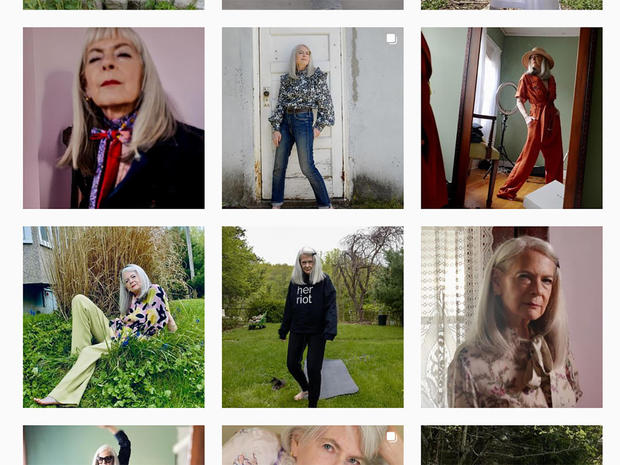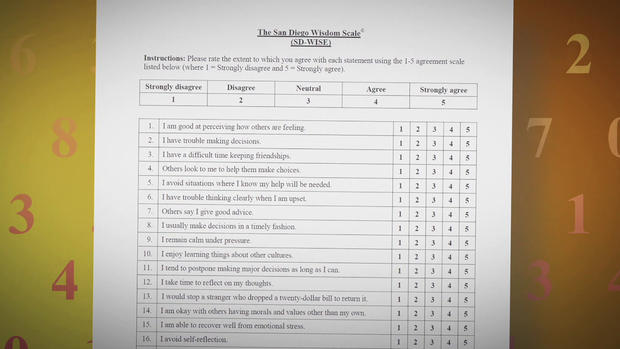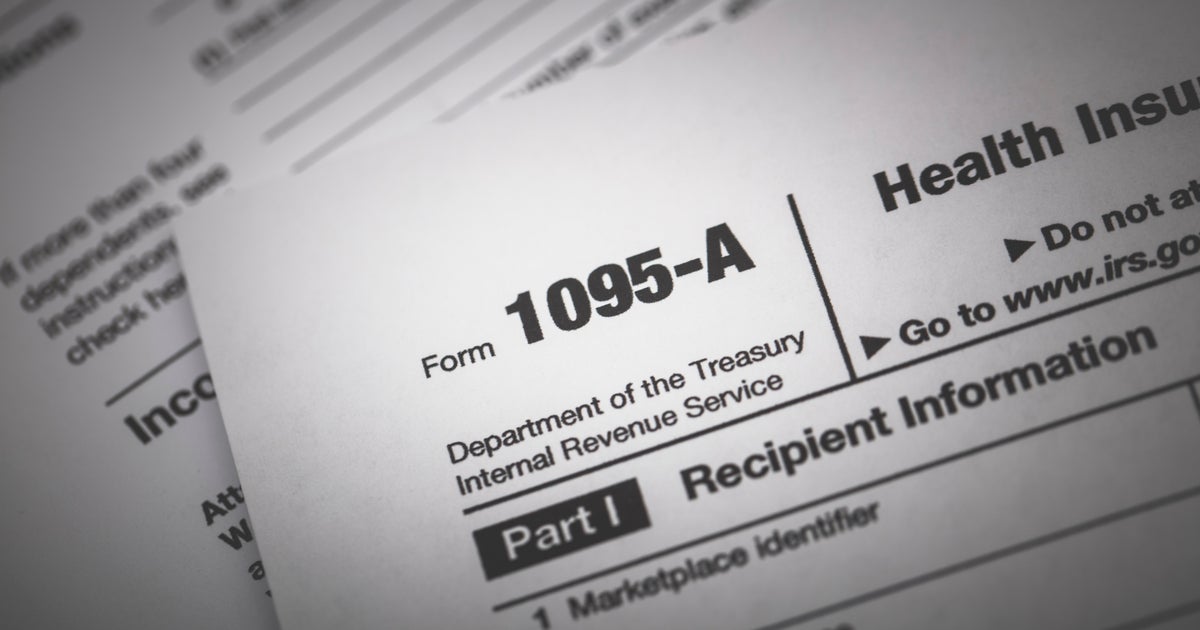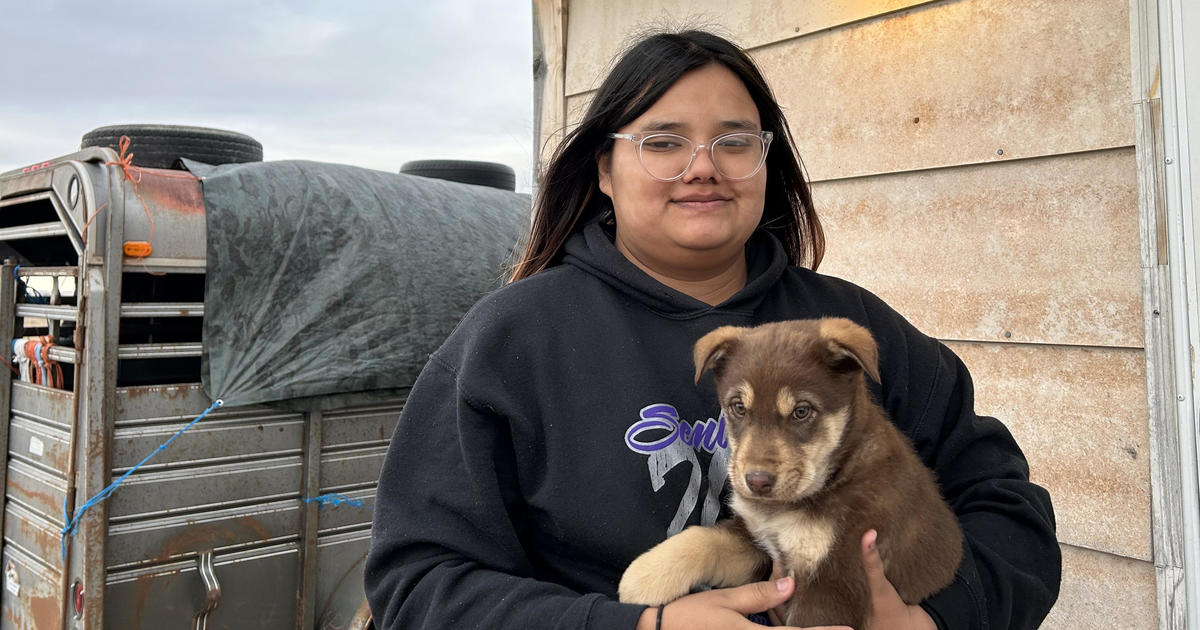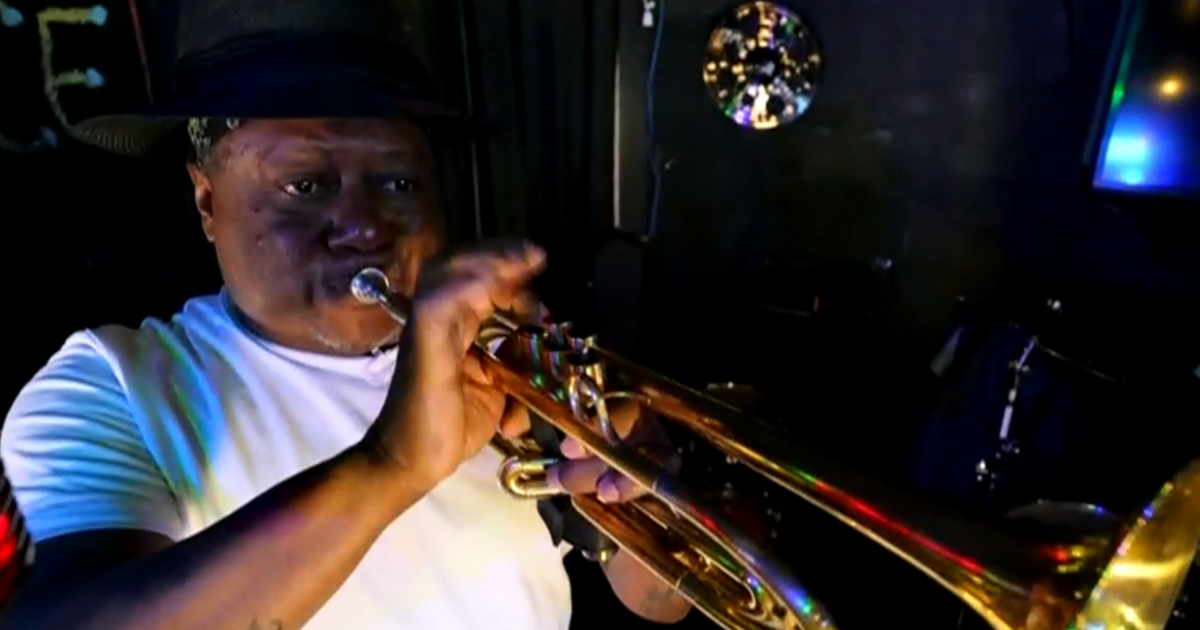The pursuit of wisdom
In the world of Instagram fashion, it's now fashionable to follow 68-year-old Lyn Slater. "A journalist asked me once, 'What do you think about age and getting older?' I said, 'Just look at my photos. I'm performing it!'" she laughed.
Her performance is a hit, from lucrative, big-name partnerships, to three-quarters-of-a-million Instagram followers. Her mission: Show young people that getting old isn't bad … it's badass.
Correspondent Susan Spencer asked, "This is a great quote: 'I'm not 20. I don't wanna be 20. But I'm really freaking cool.' That's how you feel?"
"Yes!" Slater laughed.
A retired professor with a Ph.D. in social welfare, Slater said she'd never have had the guts to do any of this 30 years ago. But age changes everything:
"For me, the number one thing is that you really don't care what other people think about you," Slater said. "It's the most freeing, fabulous thing."
"Do you think that the wisdom that you've gained with age is a big part of what enables you to do what you're doing today?"
"I think if you use the definition of wisdom, which is the combination of knowledge, experience and developing good judgment, absolutely."
Spencer asked geriatric psychiatrist Dilip Jeste, who studies wisdom at the University of California in San Diego, "Does older really mean wiser?"
"Usually, yes," he replied.
Dr. Jeste (co-author of "Wiser: The Scientific Roots of Wisdom, Compassion, and What Makes Us Good") co-created the San Diego Wisdom Scale, which measures decision-making, self-reflection, emotional regulation, and other components of wisdom. Those who score higher are generally older.
"We become happier as we get older," he said. "We become more satisfied with life. We have better control over emotions. We become more self-reflective. And this is all based on empirical scientific studies."
Professor Laura Carstensen, who heads up the Stanford Center on Longevity at Stanford University (dedicated to improving "century-long lives"), said, "It would be hard to become wise at the age of 10, for example, because you wouldn't know that much about life and about the world. But over the years, we gather information about people, about cultures, about different kinds of experiences. And it's that basis that allows us the opportunity to become wiser about life."
Spencer asked, "If you could back in time and have a conversation with your 20-year-old self, what advice would you give that 20-year-old person?"
"The first word that comes to my mind would be 'chill,'" Carstensen laughed, "to tell my younger self it'll be okay, you know, not to worry so much."
"Do you feel like you personally have gotten wiser as you've gotten older?"
"No! I guess I would be suspect of any individual who describes themselves as wise."
"That's not wise!" said Spencer.
Slater said, "I don't think every old person is wise, and I don't think you automatically get wise when you're old. You have to want it. You have to pursue it."
"And you have to work at it?"
"Yes, you do. Yes, you do."
And working at it, said Slater, is the wisest thing to do.
"So," Spencer asked, "when The Who sang, 'I hope I die before I get old,' they had it wrong?"
"Yes!" Slater laughed. "I like to quote David Bowie: 'Aging is when you become the person that you always should have been.'"
For more info:
- accidentalicon.com (Lyn Slater)
- Follow Lyn Slater on Instagram
- Dr. Dilip Jeste, University of California, San Diego
- "Wiser: The Scientific Roots of Wisdom, Compassion, and What Makes Us Good" by Dilip Jeste, M.D., with Scott Lafee (Sounds True), in Hardcover, eBook and Audio formats, available via Amazon and Indiebound
- The San Diego Wisdom Scale
- Laura Carstensen, Stanford University
- Stanford Center on Longevity
Story produced by Amiel Weisfogel. Editor: Carol Ross.
